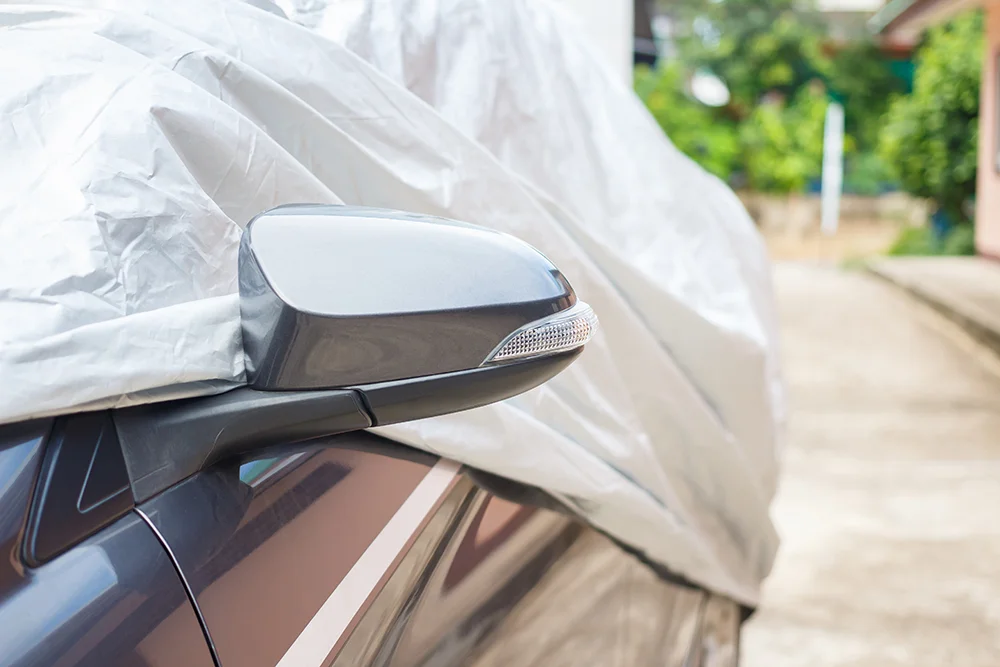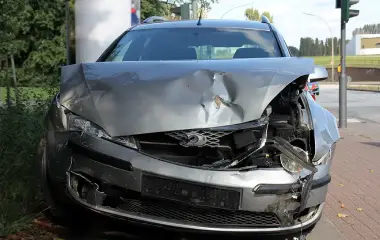Rules for selling unroadworthy cars in every Australian state
Selling a car without a roadworthy certificate can be confusing, especially with different rules across Australia. Whether you’re a seasoned car seller or doing it for the first time, understanding what’s required in your state is crucial. We’re here to help clear things up, so let’s dive into the essentials of selling a car that isn’t roadworthy and what you need to know to make a smooth sale.
What we’ll cover:
- The rules for selling a car without a roadworthy certificate in each state
- A step-by-step guide to selling without a roadworthy
- Common mistakes to avoid during the sale
- Frequently asked questions for each state
- How 1800 Salvage can make the process easier for you
Which states require a roadworthy certificate when selling a car?
If you’re selling a registered vehicle privately — without going through a cash-for-cars service — each state has its own set of rules. Let’s break down what you need to know because, in most cases, you might not need an RWC at all!
New South Wales roadworthy certificate regulations
In NSW, the Roads and Maritime Services don’t require a roadworthy certificate to sell an old car, but there's a catch if your vehicle is over five years old. You'll need an annual safety check, known as a pink slip, before renewing the registration. This isn’t for selling specifically, but it’s worth keeping in mind.
Not sure if your car needs a pink slip? NSW residents usually get a heads-up in their registration renewal notice. If not, you can always check your vehicle's compliance plate to find out when your next annual safety inspection is due.
You don’t need a roadworthy certificate if you’re selling your car to a salvager in New South Wales.
How long do pink slip inspections last?
A pink slip in NSW is valid for six months from the issue date. After that, if you still haven't renewed the registration, you’ll need to get another one. It’s always a good idea to double-check the latest regulations on the NSW Roads and Maritime website to stay up-to-date.
What if I purchased an unregistered vehicle in NSW?
Bought an unregistered car in NSW? Before you hit the road, you’ll need to re-register it, and that means getting a blue slip inspection to verify that it’s safe. While you don’t need a roadworthy certificate to sell in NSW, that pink slip for vehicles older than five years is crucial to show the car’s safety status.
Victoria roadworthy certificate regulations
You can sell your car for cash in Melbourne without a roadworthy certificate to a private buyer — but you’ll need to remove the number plates and return them to VicRoads, effectively suspending the registration. If you're selling a registered car, then yes, a roadworthy certificate is a must.
There are exceptions, though. If your vehicle is a specially constructed one and not meant for carrying passengers or goods, you’re off the hook for the safety inspection.
How long does a roadworthy certificate in Victoria last?
A Victorian roadworthy certificate is good for 30 days from the date it’s issued. If you don’t sell or transfer the car within that window, you’ll need to get another inspection. Staying on top of the expiry date will help you avoid hiccups during the sale.

Queensland roadworthy certificate regulations
In Queensland, selling a registered car privately means you’re required to have a safety certificate, no matter how old the vehicle is. Only licensed dealers get an exemption from this rule. Failing to display the safety certificate during the sale could set you back over $700 in fines — yikes!
1800 Salvage is a licensed dealer, so we can buy unroadworthy cars in Queensland with no problem!
How long does a safety certificate last in Queensland?
For private sellers in Queensland, safety certificates are valid for two months or 2000km, whichever comes first. If you’re a licensed dealer, you’ve got a little more leeway with a three-month validity or up to 1000km. Remember, each safety certificate is good for one sale only, so you’ll need a fresh one every time you’re selling.
ACT roadworthy certificate regulations
In the ACT, a roadworthy certificate is only necessary in specific cases like transferring a vehicle that’s over six years old, moving interstate registration, or clearing a defect notice. If you’re setting up a new registration for a car bought privately, you’ll also need a Certificate of Inspection.
As a vehicle salvager in Canberra, we don’t need any of that paperwork to tow your unwanted car away!
How long does a Certificate of Inspection last in the ACT?
Certificates of Inspection are typically valid for one month from the inspection date. If your car’s still sitting unsold after that, you’ll need to get it re-inspected for a new certificate.
Western Australia roadworthy certificate regulations
In Western Australia, you don't need a roadworthy certificate (known as a Certificate of Inspection) when selling a car. However, the car must still be roadworthy when sold. The transfer process can be done online or at a Department of Transport office.
Relevant regulations and steps for sellers in Western Australia:
- Ensure the vehicle is safe: Even without a certificate, it still needs to meet basic road safety standards.
- Transfer of ownership: This can be done online or in person at a Department of Transport centre with a Transfer of Vehicle Ownership form.
- Outstanding fines and fees: Clear these before finalising the sale to avoid issues.
South Australia roadworthy certificate regulations
You do not need a roadworthy certificate to sell your car in South Australia, but your car still needs to be safe to drive. The registration transfer needs to happen within 14 days to dodge any penalties.
Relevant regulations and steps for sellers in South Australia:
- Vehicle safety: It’s on you to make sure the car's safe for the road.
- Registration transfer: Get it done through Service SA, either online or at a service centre.
- Notify authorities: Service SA needs to know within 14 days, and you’ll want to hand over the registration papers to the buyer.
Tasmania roadworthy certificate regulations
Tasmania doesn’t require a roadworthy certificate for vehicle sales, but the vehicle must be safe. Make sure the transfer of ownership is handled properly through the Department of State Growth.
If you’re looking to sell your car for cash in Tasmania, we can help you through the process.
Relevant regulations and steps for sellers in Tasmania:
- Safety requirements: Your car doesn’t need a certificate, but it does need to be in safe condition.
- Transfer of ownership: Both the buyer and seller need to complete the transfer within 14 days.
- Clear any outstanding payments: Settle all fees or fines before the sale.
Northern Territory roadworthy certificate regulations
In the Northern Territory, you generally don’t need a roadworthy certificate for a private sale. However, your car needs to be safe and you should transfer the registration within 14 days.
Relevant regulations and steps for sellers in the Northern Territory:
- Safety standards: The car needs to meet basic safety standards.
- Registration transfer: Done online or in person at an MVR office.
- Check for liabilities: Clear up any outstanding fines or fees tied to the vehicle.
Can a dealer sell a car without registration and a roadworthy certificate?
Dealerships will typically have a licensed vehicle tester carry out the roadworthy test for you, so you won’t need to worry about certificates when buying from them. However, most dealers won’t sell a car without a roadworthy or registration, keeping the process streamlined and simple.
Can you get a fine for selling a car without a roadworthy certificate?
Generally, you need a roadworthy certificate to sell a registered car, but if you’re offloading an old, unregistered vehicle, you’re often off the hook. Fines vary by state, with Queensland being one of the stricter ones, slapping fines over $700 if you skip the safety certificate.
A step-by-step guide to selling without a roadworthy certificate
- Understand your state’s rules: Know the specific regulations in your state regarding roadworthy certificates and other necessary documents.
- Prepare your documentation: Gather proof of ownership, registration papers, and any other required certificates.
- Remove number plates if necessary: Some states require you to return number plates to the relevant authority.
- Notify the buyer about the vehicle’s condition: Be upfront about any issues, especially if the car isn’t roadworthy.
- Complete the transfer of ownership: Use the correct forms to officially transfer the vehicle's ownership.
- Notify the registration authority: Inform your state’s registration authority of the sale, especially for unregistered vehicles.
Common mistakes to avoid when selling without a roadworthy certificate
Avoid these pitfalls to ensure a smooth sale:
- Skipping necessary paperwork: Even if a roadworthy isn’t required, always provide the correct transfer documents.
- Misleading buyers: Be upfront about the car’s condition to prevent disputes.
- Not checking state-specific rules: Each state has unique requirements — double-check to ensure compliance.
By being aware of these common mistakes, you can avoid unnecessary complications during the sale process.

Frequently Asked Questions
What happens if I don’t transfer the car registration after selling?
Failing to transfer the car registration after a sale can leave you liable for any fines, fees, or legal issues incurred by the new owner. It’s crucial to notify your state’s registration authority of the sale as soon as possible and ensure that the buyer completes the transfer process. Some states may also have deadlines for these transfers, and missing them can result in penalties.
Do I need to remove the car’s plates before selling it without a roadworthy?
In many states, if you’re selling a registered vehicle without a roadworthy certificate, you’ll need to remove the plates and cancel the registration. For example, in Victoria, the plates must be returned to VicRoads before the sale. Whatever state you’re in, all you’ll need to do is return the plates to your road authority. Doing this ensures your car’s considered an unregistered vehicle, which will really simplify your vehicle transactions.
Can I sell my car privately without fixing defects noted in a roadworthy inspection?
Yes, you can sell your unwanted car privately without fixing the defects, but you’ll need to cancel the registration and sell it as an unregistered vehicle. Be upfront about any issues with potential buyers. Selling the car “as is” can still be a viable option, especially if you’re transparent about its condition. Services like 1800 Salvage can buy your car regardless of its condition.
Is it better to sell my car to a dealer or a private buyer if I don’t have a roadworthy certificate?
Selling to a dealer can be easier if you don’t have a roadworthy certificate, as dealers can often handle or waive the need for one, especially if the car is being purchased for parts or as scrap. Private buyers may be more hesitant without a roadworthy, as they would need to arrange their own inspection and repairs. Weigh the convenience against the potential price difference; dealers might offer less, but they also take care of more of the process.
Sell your car with ease at 1800 Salvage
Selling a car without a roadworthy certificate doesn’t have to be a hassle. Whether your vehicle is unregistered, undriveable, or simply not worth the cost of repairs, there are ways to sell it with ease. By understanding the rules in your state and choosing the right buyer, you can navigate the process smoothly.
At 1800 Salvage, we make selling unroadworthy vehicles straightforward and convenient. Here’s why choosing us is the best option:
- No roadworthy required: As a licensed motor car trader, we buy cars in any condition, so you don’t need to worry about obtaining a roadworthy certificate or fixing any defects.
- Fast, free towing: We offer free car removal from your location, saving you the hassle and expense of transporting the vehicle yourself.
- Instant payments to your nominated account: We provide on-the-spot payments, ensuring you get your money quickly without waiting for checks to clear.
- Minimal paperwork: Just sign a couple of digital documents and you’re done.
- Fair and competitive offers: Our team provides fair, competitive offers based on your car’s condition, so you know you’re getting a good deal.
Ready to sell your unroadworthy car without the usual headaches? Contact us at 1800 Salvage, and let’s turn your old vehicle into instant cash with minimal fuss.



.jpeg)

.jpeg)

.webp)
